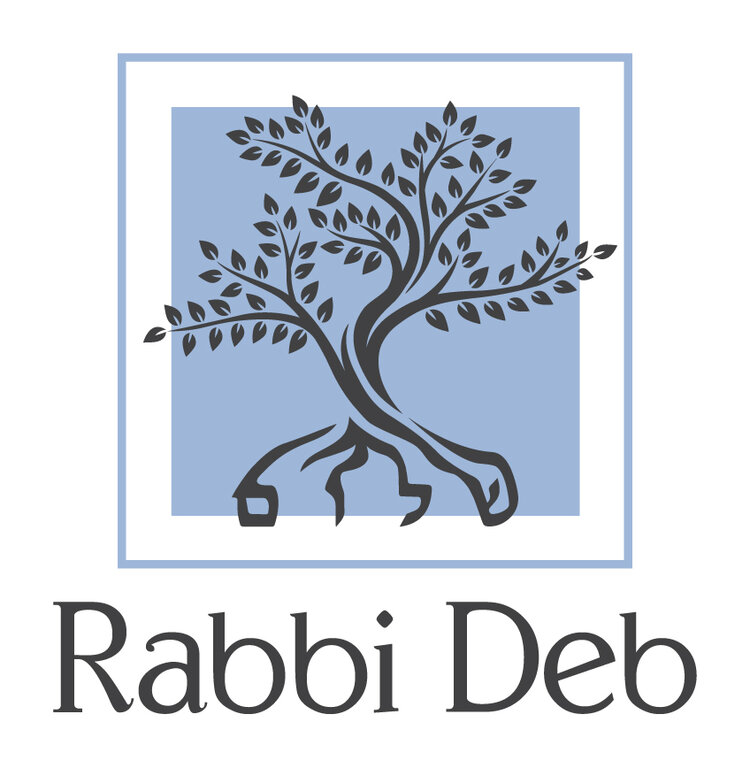Midrashim for Earth Day
Did you know that some of the best stories in the Torah, are actually not in the Torah?
I was in grade school when I learned this story:
Terach (Abraham’s father) was an idol maker who once went away and left Abraham in charge of the store. While he was gone, Abraham took a stick, smashed the idols and placed the stick in the hand of the largest idol. When Terach returned, he asked Abraham what happened to all the idols. Abraham told him that someone came in to make an offering to the idols, and the idols argued about which one should eat the offering first, then the largest idol took the stick and smashed all the other idols. Terach responded by saying that they are only statues. Abraham responded, “yYou know they are inanimate! Yet you worship them!”
If you’d asked me, I would have told you it was in the Torah -- every Jewish kid I knew, knew that story. Well, it isn’t. It is a Midrash, a myth or related tale that gives deeper meaning into the text of the Bible.
There are three midrashim, three stories, that are especially appropriate as we celebrate the 50th anniversary of Earth Day.
Genesis 2:8 reads: Adonai planted a garden in Eden, in the east, and placed there humankind. A midrash tells us the following: Since it is written 'And Adonai planted a garden of trees in Eden.' You also, when you enter into the land, only occupy yourselves with planting trees first.’
Over the centuries this midrash has been interpreted to teach and remind people that our first duty is to the land which we occupy. Trees take time to grow and require nurturing, but also they provide a multitude of benefits including food, shelter, fuel and these days, we know that they provide so much more -- root systems anchoring the earth, air filtration, and biomes for many many creatures.
In Ecclesiastes 7:13 it is written “ Look at God's work - for who can straighten what God has twisted?” The Midrash says -- When the Adonai created the first humans, they were led round all the trees of the Garden of Eden and God said: “Look at My works, how beautiful and praiseworthy they are! And all that I have created, it was for you that I created it. Pay attention that you do not corrupt and destroy My world: if you corrupt it, there is no one to repair it after you.”
We have duty--a biblical duty, to care for our natural home. This is not a new concept, it has always been a cornerstone of human justice. And, like all paths to justice there is no one single way to go, but the ultimate destination of protecting God’s garden, is the same.
We also have a midrash that parallels the story of Noah and the Ark. Noah was tasked with saving the living creatures, but Na’amah, Noah’s wife, was given the task of saving all of the plant life on earth from the ravages of the flood. Na’amah ranges over the entire earth, gathering samples of fruits and vegetables, flowers and trees, shrubs and vegetation to take onto the Ark. She protects them from the animals that would use them for food, and she cares for them during the long days on the Ark. When the waters subside, Na’amah leaves the Ark and replants the earth with all of the plants that she has so painstakingly saved, making the earth into a garden again.
Of the three Midrashim this one is probably my favorite. Na’amah notices that Noah is taking care of the most visible issue of the flood--the animals that live on the earth. But, she sees that the earth itself will be vulnerable and will need to be protected as well. She has the foresight to establish the world’s first seed bank. Immediate needs are important, but so is planning for the future. I think this last midrash struck me particularly since most of my preoccupation (and probably yours) is with what is happening right now. Our world is in lock-down. We are fighting an enemy without a face. We are worried and all around us are and changes and upheaval. This midrash reminds me that I should still save some thought and action to tomorrow--the environment tomorrow, and the needs of society tomorrow. These things are intertwined. Caring for the community now and caring for the community in the future are mitzvot (commandments) and are actually good sense.
Stay well, stay safe.
